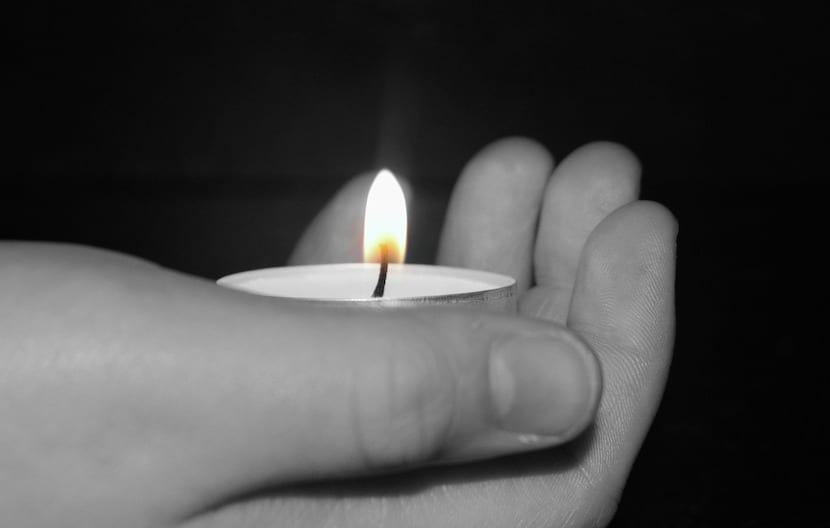
According to World Health Organization, palliative care "improves the lives of patients and families who encounter life-threatening illnesses". They are treatments and interventions that alleviate pain and other symptoms, and provide psychological support. In this entry of El Confidencial, we read the testimony of Elisabet, whose 11-year-old daughter lost her life in 2014. She had a rare disease called Rett syndrome, and months after the last hospital admission, she entered the palliative system as there was no solution; When she breathed for the last time, she did it with her family, at home.
A document from Ministry of Health, Social Services and Equality, declares that palliative care for patients who need it is a right recognized by international organizations; and Spanish legislation also describes such healthcare provision. There are recommendations at the European level, collected in the National Plan for Palliative Care, which has its own development. In theory then, "Attention to the terminally ill patient is guaranteed." Is it also so with children?
Sergio del Molino is the creator of a petition on the public platform Change.org, whose title is "Children have the right to die at home without feeling abandoned #palliative care". The origin of this action was the death of his son Pablo, who was only 2 years old, and was ill with leukemia. The best place in the world to spend the last days of his life was his home, of that I have no doubt; But when the family left the hospital, and as reported in the petition, they faced the child's agony alone, as no palliative team visited them.
In our country there are a few Autonomous Communities that offer the service, in practice only Murcia and reference hospitals in Madrid or Catalonia; and in the case of Niño Jesús (Madrid) it is a reality thanks to private funds. Thus, out-of-hospital palliative care is not applied in most of the territory.
Pediatric palliative care is for the body, mind and spirit of the child, also providing support to the family (Ministry of Health), but if there is no political will to recognize the right to receive them at home, with full support from the health system , families who bring their children home in their last days or weeks of life, the necessary treatments and care are not guaranteed. A change of mentality is necessary, because although Medicine is aimed at saving lives, it is not always possible; The right to a dignified death in the company of loved ones, and without pain, is also a Right (in capital letters) of pediatric patients who are in an extreme situation.

What is pediatric palliative care?
They are characterized by being applicable to a wide variety of diseases (oncological, neurological, complications due to prematurity, etc.). These diseases are divided into four groups between threatening situations but with viability of curative treatment; irreversible; requiring long periods of intensive treatment to sustain life; and progressive with no healing options. The number of pediatric cases that need this care is lower compared to the adult population that requires it; It should also be taken into account that minors are developing, which affects the specific aspects of care.
Some of the determining factors for this health service are emotional involvement, being a new area of knowledge, or the low availability of drugs. On the other hand, conflicts in ethics may also arise, since since the parents are responsible, the child's wishes and / or their participation may not be taken into account. The text of the Ministry of Health indicates the need to recognize the 'tipping point' from which the care needed will be palliative care.
A stark and sad reality.
No parent is prepared for the death of their child, because mothers and fathers GIVE life: the natural thing is that our children survive us. In these cases of diseases that threaten life and do not remit, our Health meets the reality that there are cases like Pablo's, whose father (Sergio) has in a blog post of Change as after having exhausted chemotherapy and other therapies, in addition to a bone marrow transplant, they helplessly attended the reappearance of leukemia. The decision to return the child to his home seems reasonable, and medicine also implies care, why then did the family feel so abandoned in such delicate moments?

Pain management: an important question.
On the SECPAL website, there is interesting information on this topic: terminal illnesses frequently present with pain, which in addition to its own discomfort, causes restlessness, sleep disturbance or lack of appetite. Sometimes this pain is not well valued due to the maintenance of erroneous considerations such as a child's poor ability to express himself or his lack of experience.
The text of the petition in Change ends like this:
"That is why I ask for your signature to ask the Ministry of Health and the Autonomous Communities to work together to incorporate and extend pediatric home palliative services as a right for any child whose parents request it, no matter where they live. I know we can achieve it, because thanks to requests already initiated on this platform, advances are being made in many other areas of Health. We just need all the support possible ”.